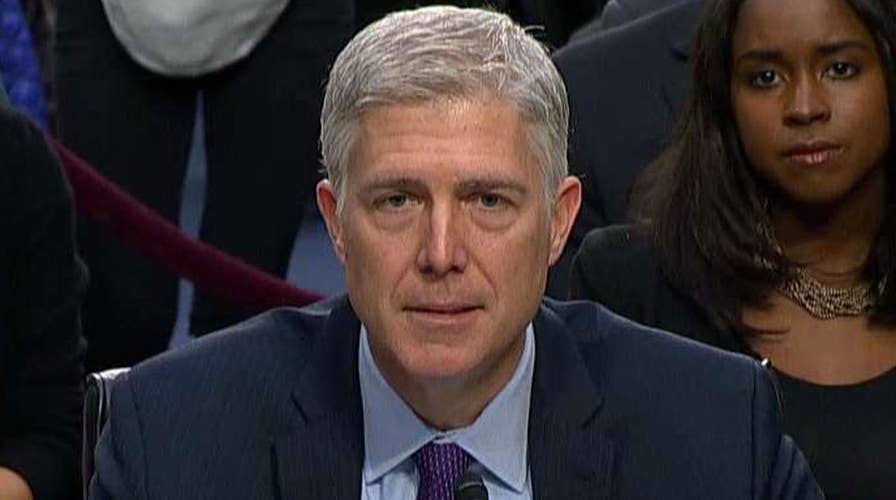Gorsuch: I have no difficulty ruling for, against any party
Supreme Court nominee addresses judicial independence at confirmation hearing
Judge Neil Gorsuch said Tuesday the controversial Supreme Court decision that legalized abortion is “precedent” and acknowledged the ruling had been reaffirmed “many times.”
Gorsuch, President Trump’s nominee to fill the Supreme Court seat vacated when Justice Antonin Scalia died, does not have much of a history ruling on abortion issues, and the contentious subject was one of the first topics broached during the question-and-answer session of Gorsuch’s confirmation hearing before the Senate Judiciary Committee.
“Roe v. Wade, decided in 1973, is a precedent of the United States Supreme Court, it has been reaffirmed…and all of the other factors that go into analyzing precedent have to be considered,” Gorsuch told Sen. Chuck Grassley, R-Iowa. “…A good judge will consider it as precedent of the United States Supreme Court, worthy as treatment of precedent like any other.”
Sen. Dianne Feinstein, the first Democrat to question Gorsuch, immediately followed up, citing the importance of the issue since, she said, President Trump “said he would appoint someone who would overturn Roe.”
“Once a case is settled, that adds to the determinacy of the law,” Gorsuch told Feinstein, clarifying his position on precedent. “What was once a hotly-contested issue is no longer a hotly-contested issue. We move forward.”
Feinstein asked if Gorsuch considered Roe v. Wade “super precedent” – a decision that cannot be overturned.
“It has been reaffirmed many times, I can say that,” Gorsuch answered.
Feinstein quickly added: “Yes. Dozens.”
Gorsuch was careful in his first several answers Tuesday to not tip his hand on how he would decide any potential issue to come before the Supreme Court.
“I have offered no promises on how I'd rule, in any case, to anyone and I don't think it's appropriate for a judge to do so,” Gorsuch said.













































